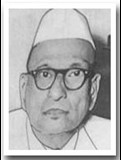Generalities
Affects the circulation causing congestive feeling of tension. Heart, kidneys, marrow, ankles and right side are also affected. Pains are fleeting, can hardly tell where they are, seemingly felt in marrow of bones; increase and decrease gradually or make the patient faint and sick all over. Burning, gnawing. Violent involuntary starts of the body Immobility; of one side. Sense of paralytic weakness. Emaciation. Prostration or shock, after surgical operation. Numbness. Soreness. Formication, in limbs. Oedema; esp. about the ankles as a concomitant. High blood pressure; arteriosclerosis. Affections of bones esp. of femur. Chronic sequelae of haemorrhages. Rheumatic pains. Chronic sprains. Stenosis of oesophagus. Neuritis, worse cold. Coldness in spots, on calves. Pain and itching alternate.
Worse
COLD; Uncovering. Walking. Sprains. Bleeding. Evening. Change of weather. Stooping. Touch. Rubbing.
Better
Heat and light. Sun. Wraps. Hot bath.
Mind
Excessive forgetfulness. Apprehension as from bad conscience. Depression of spirits. Irritable; suddenly becomes angry, beats anything that comes in his way.
Head
Aches into upper jaw, with vertigo and nausea. Violent pain in nape extending upwards better wraps. Distensive pressure on entire head. Aching eyebrows.
Eyes
Burning and red. Photophobia, remaining after operation esp. when objects appear covered with blood. Green spots before the eyes in the dark. Pain and lachrymation on using eyes, with dancing and alternation of colours of objects looked at.
Nose
Itching, redness and burning of nose. Bloody crusts.
Face
Red with burning heat or very pale; every time the patient walks.
Mouth
Feels numb and dry in A.M.; on waking. Teeth as screwed together.
Stomach
Pressure in stomach during digestion. Hiccough causes chest pains. Food taste insipid. Craving for bread and beer. Aversion to meat.
Abdomen
Colic in umbilical region. Hard, knotty stools, evacuated slowly with much effort; then burning in anus lasting for a long time. Diarrhoea worse at night; with constant urging; exhausting, of yellow water; with gripping, better towards morning. Periodical diarrhoea.
Urinary
Pale urine with strong smell of ammonia.
Respiratory
Pressure, as of a load on chest. Pain in the left breast with oppression worse after meals.
Heart
Heart feels smothered. Heart block.
Extremities
Hands numb. Cramps in calves and soles. Ankles sprained or puffed; as a concomitant. Chronic spasms esp. of ankle joints. Sciatica with oedema of ankle. Immobility of the limbs, of one side only, like paralysis. Gnawing as if in marrow of the bones. Diarrhoea, during rheumatism.
Fever
Flushes of heat; in face; yet aversion to uncovering. Profuse perspiration at night; climacteric.
Skin
Moist itching burning eruptions better in open air esp. in warm sunshine.
Related
Calc; Rhus-t.

